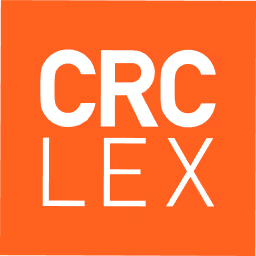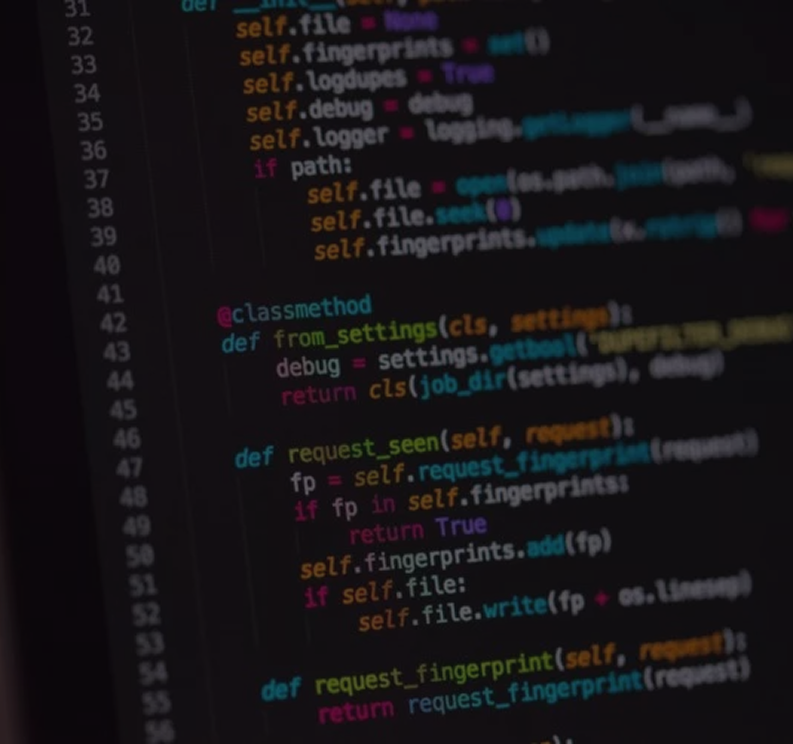In the name of well-being: from North to South, new strategies for more livable municipalities
“The real challenge is to connect the dots and listen, team up and be aware of the value of collaboration. In this vision, the project City Vision represents an important point of reference for encouraging public-private dialogue and developing more sustainable cities.” With these words Layla Pavone, head of the Technological Innovation and Digital Transformation Board of the City of Milan, opened 'City, Health and Wellness', first stop of Roadshow 2025 than City Vision. To welcome guests also Diego Valazza, Head of Leasing Europe at Lendlease, who emphasized the role of MIND in encouraging collaboration between the realities present: “We have created an ecosystem designed to attract talents and projects, with a vision that goes beyond the borders of Milan, establishing itself as a national and international reference point for innovation.”
Made in collaboration with MIND and Lendlease, representatives of companies and public administrations discussed projects and development opportunities to improve the quality of life in urban settings, with a clear directive: to focus on the needs of citizens.
“City Vision - underlines the director Domenico Lanzilotta - is an ecosystem of comparison and collaboration between administrations, businesses and research centers to transform our cities into more sustainable and livable places. Urban well-being is not only a matter of infrastructure, but of a common vision and integrated strategies. Working together means giving value to the experiences of those who, every day, build the future of communities.”
The experiences of municipalities large and small from all over Italy
A work table full of contents, with twenty-two participants coming from all over Italy. In addition to a selection of Lombard municipalities, in fact, administrations from Piedmont, Emilia-Romagna, Abruzzo and Sicily also took part in the event.
The dialogue between the representatives of the institutions was opened by Sara Santagostino Pretina, Deputy Mayor of Settimo Milanese: “To promote well-being, we must face a cultural change, breaking down traditional barriers. The management of phenomena such as urban migrations to large cities and the consequent depopulation of territories outside these contexts requires adequate services and a sharing of best practices between administrations”, highlighting the problems on which to intervene. On the health and well-being front, Andrea Furegato, mayor of Lodi, reaffirmed the need for active involvement of citizens in health policies: “We have created a participatory body that involves citizens, making health a central and shared theme.” Of the same notice Carlo Assi, city councilor of Cernusco sul Naviglio, who recounted the project for a cardioprotected city: “Thanks to the collaboration with foundations and associations, we have equipped every area of the city with lifesaving devices, making Cernusco a model of excellence in the prevention and management of health emergencies.”
Attention to the environment and urban regeneration was at the center of the intervention of Luisa Salvatori, mayor of Vizzolo Predabissi: “We have transformed difficulties into opportunities, focusing on sustainable solutions,” he said, recounting the redevelopment of a former quarry into a natural oasis in the area. A commitment shared by Nicoletta Saveri, mayor of Inveruno, who emphasized the creation of new green areas: “We are creating a new green lung for the city, actively involving citizens.”
On the innovation front, Emiliana Brognoli, Councillor of the City of Rho, emphasized how technologies can improve the quality of urban life: “We have embarked on a path of urban transformation focused on mobility and technological innovation,” with solutions such as smart traffic lights and intelligent parking.
From Sicily, Michelangelo Giansiracusa, mayor of Ferla, recounted the experience of his municipality as a holistic wellness laboratory: “We have transformed our village into a wellness laboratory, introducing spaces for slow living and psychophysical well-being.” An approach that is echoed in the policies of Angelo Radica, mayor of Tollo, which focused on protecting the landscape and local traditions: “We collaborate with wineries to promote sustainable agricultural practices and enhance wine production.”
Finally, the value of resilient communities was underscored by Fabio Mottinelli, mayor of Ceva: “By working together, we can address social and health challenges more effectively”, and from Francesco Cacciatore, mayor of Santo Stefano Quisquina, who highlighted the importance of land enhancement to combat depopulation: “We want to keep our traditions alive, while offering opportunities for new generations.” A comparison that returned a varied landscape of strategies and good practices, confirming how urban well-being passes through an integrated approach between health, environment, innovation and social cohesion.
The contribution of the Emerging Technology Houses
What enriched the table, in addition to public administrations, were the contributions of Case of Emerging Technologies, innovative hubs funded by Ministry of Enterprises and Made in Italy distributed in 13 cities throughout Italy, which favor the birth of companies committed to the development of cutting-edge technological solutions. Representing Molise, Michele Cermele, director of the House of Emerging Technologies in Campobasso, illustrated the applications of tele-neuromedicine for the monitoring of neurological patients. “Technology allows us to bridge distances and offer more timely and effective treatments,” Cermele explained. Among the examples of innovation applied to healthcare, the project of Responsible Research Hospital, for post-operative home support for cardiological patients.
From Puglia, the House of Emerging Technologies Calliope in Taranto presented its initiatives inspired by the model “One Health”, with particular attention to air quality monitoring in the Apulian capital. “An integrated approach to environmental and human health is essential to improve well-being in our cities,” he emphasized Marco Favia, Communication Manager at Calliope.
The role of companies: innovation at the service of cities
The contribution of large companies has also proved to be central to the debate. Davide Della Giustina, head of Business Development and Transformation Business Unit Smart Infrastructures at A2A emphasized the importance of new urban energy management models: “The use of heat produced by data centers to heat buildings is a concrete example of circular economy applied to the city.”
On the health front, Marco Gorini, Project Head Digital Health & Innovation at AstraZeneca reaffirmed the value of digital health: “There are two drivers that lead to the success of our company: research and innovation. We have chosen MIND as a strategic hub to develop innovative solutions in telemedicine and remote assistance, improving access to care for everyone.”
Open Debate: a new format for City Vision
In the second part of the event, the working table was replaced by the Open Debate mode, a new form of discussion to deepen the contents of the speeches at the table. The works were introduced by Domenico Lanzilotta, director of City Vision, who illustrated the report dedicated to the Smart Living ranking, the indicator that measures the quality of life in Italian municipalities.
The discussion continued with direct testimony. For the North-West, Giacomo Angeloni, Smart City Councillor of Bergamo, together with the mayors Angelo Mazzolini di Collebeato and Ivan Pendeggia di Montevecchia, shared concrete examples of innovation in small municipalities. From the North-East, Giulia Zucchi, mayor of San Secondo Parmense, accompanied bySports Councillor Marta Negri, recounted the progress of a center of 6,000 inhabitants, ranked among the top five for quality of life. From the South and the Islands, the mayors Angelo Radica (Tollo), Michelangelo Giansiracusa (Ferla) and Francesco Cacciatore (Santo Stefano Quisquina) have emphasized the importance of emerging technologies in relaunching local communities.
A central moment of the event was dedicated to the companies of the network of Houses of Emerging Technologies, with interventions on the experiences of Taranto And of the Molise. Francesco Elmi, CMO of Quest-it, presented an avatar based on AI and 5G, designed to facilitate emergency calls or contacts with call centers, even for people with hearing disabilities through LIS (Italian Sign Language). Paolo Sabatino, CEO of Errepi Net, presented the Calliope Citizen Platform, an environmental monitoring platform, developed with the Meditech Competence Center, which collects and standardises data collected from sensors, drones and IoT and, thanks to smart data models compatible with FIWARE standards, guarantees the full comparability of the information collected with other European platforms. Fabio Cerino, CEO of Beefrest, showed wearable sensors to measure exposure to pollutants, applicable for example to municipal operators, who, working on the territory, can collect useful data for environmental analysis. Finally, Alessio Pietracupa, CEO of Evotion, presented wearable devices, created in strategic agreement with La Molisana, to implement software to support parents in children's dietary education, with the aim of preventing childhood obesity.
There has been no lack of good practices in the healthcare field. The Modena AUSL presented the project “Start Previa Nurse + OT” focused on telemedicine, while the ASL5 of La Spezia described “Creatilavita.it” a social inclusion initiative awarded to City Vision Awards 2024.
The segment concluded with a business panel: Christian Fracassi, CEO of ISINNOVA, discussed the transformation of waste into resources; Roberto Bettin by Embecta He illustrated 'Health Champions' a program to promote well-being through sport; finally, Carlo Rossi Chauvenet, Founder of Data Valley, explained how data analysis can support territorial governance, in collaboration with the Lombardy Region.
City Vision It is a project of Blum and Padua Hall, in collaboration with A2A, under the patronage of ANCI and with the participation of the Emerging Technology Houses. The community partners are ANFoV, Assintel, Data Valley, EntopanInnovation, Istituto Europia.it, indig communication, Innovation Hub South Europe, InnovUp, Living Future Europe, Milano smart city alliance, NA StartUp, PA Social, Network of Sustainable Municipalities, If you are Mayor, Smart Communities Tech.
Read the full article: Www.republica.it




